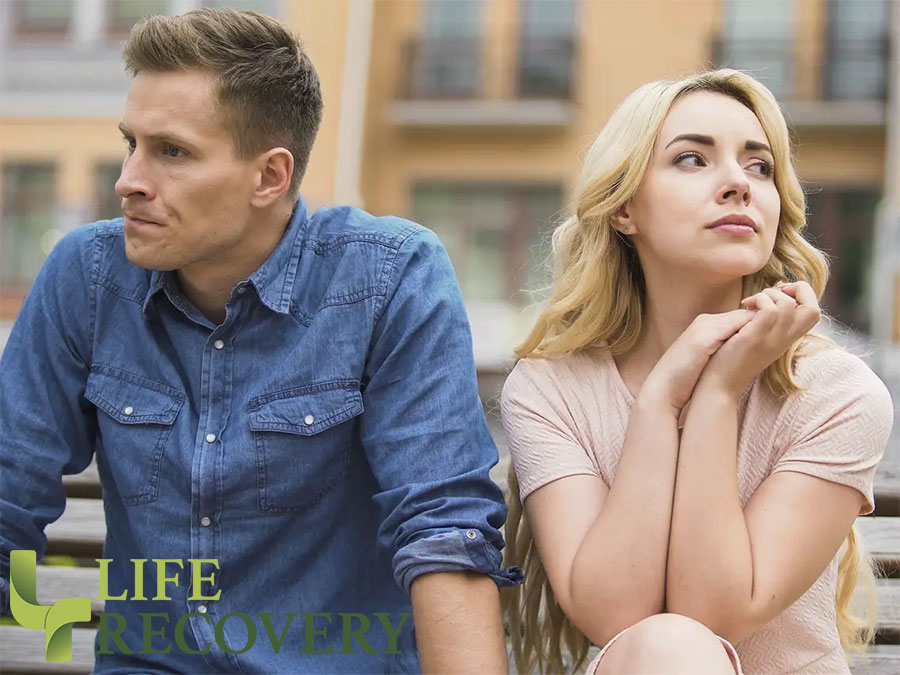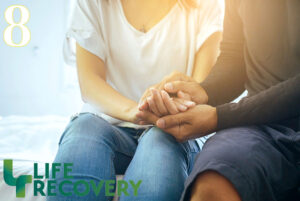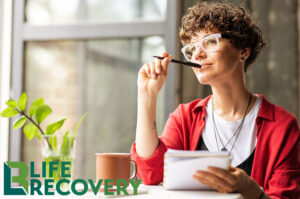If you have a family member who struggles with addiction, you may be tempted to take responsibility for them . . . don’t!
Truth is, you are only responsible for your choices—your loved one is responsible for theirs. One day we will all give an account to the Lord. Romans 14:12 says, “Yes, each of us will give a personal account to God.”
Just as you have the freedom to make your own choices, others have the freedom to make their choices. You give people freedom by not enabling them. It helps to understand the difference between enabling and helping.
What is enabling?
It’s doing for someone what they CAN do for themselves.
For example, you might call in sick for a spouse who is hung over so they don’t lose their job. You think you’re helping them. However, you are hurting them because they don’t have to face the consequences of their actions. Your addicted loved one needs you to be honest, not deceitful—it’s one of the best ways you can help them.
Steve Arterburn puts it this way, “We must be transparent and authentic and stop acting like magicians, creating illusions to convince people that things are not as they appear.”
You are enabling your loved one’s addiction when you . . .
- Give money to pay their bills.
- Clean up after their night of partying.
- Make excuses or lie for them.
- Bail them out of sticky situations.
- Put their needs in front of your own.
A responsible adult takes care of themselves. When you try to manage someone else’s life, you are taking on responsibilities God never wanted you to take on. You are enabling them.
Stop enabling, and start allowing your loved one to face the consequences of their actions.
What is helping?
It’s doing for someone what they CAN’T do for themselves.
The best way to help your addicted family member is to get into recovery yourself. You are not to blame for their addiction; however, you are responsible for whatever part you may have played in enabling them.
“Any addiction is a family disease–a family problem. That means everyone is part of the problem, and that means everyone has to be part of the solution,” said Dr. Dave Stoop, co-host of New Life Live!
You are helping your addicted family member when you . . .
- Join a Life Recovery Group.
- See a counselor.
- Develop a good support system.
- Take care of your own needs.
- Learn how to set healthy boundaries.
No matter what, resist the urge to help someone when they’re acting out—offer help to someone who is working their recovery.
If your adult child struggles with a drug addiction, and they want to live with you, and they keep asking you to pay for their bills, what do you do? In the past, you bailed them out because you didn’t want to see them get hurt. But you are tired of enabling.
What now? Bailing them out one more time won’t hurt, right?
Wrong! You can allow them to face the consequences of their actions. It won’t be easy, and you will need support; but, it will begin a new way of dealing with an old problem. You can encourage them to find a licensed counselor who specializes in drug addiction, and you can recommend a treatment facility.
It’s not easy when you stop rescuing others and allow them to face the consequences of their addiction. But when you do, you are changing your loved one’s life for the better.
If you’ve tried everything for your addicted loved one and nothing seems to work, contact New Life Ministries at 800-NEW-LIFE (639-5433). We’re here for you, and we want to help you!
Your Side of the Street

















